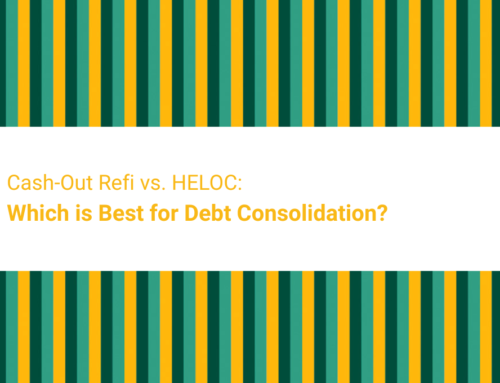When buying a home in Las Vegas or Henderson, one question appears early: which loan type fits best? Two of the most common options are FHA and Conventional loans. Both help buyers achieve their dream of homeownership, but they work differently.
Choosing between these two can feel confusing. Each program has its own rules, costs, and benefits. Picking the right one affects not just your approval but also your monthly payment, interest rate, and long-term savings.
This guide breaks down how FHA and Conventional loans compare. You’ll learn their main differences, what qualifications each requires, and which might fit your financial goals. With guidance from Drennen Home Loans, you can choose the option that feels right for your future.
FHA Loans Explained
FHA loans are backed by the Federal Housing Administration. They were created to help more people buy homes by lowering the barriers to entry. These loans are especially helpful for first-time buyers or those with moderate credit scores.
- Lower down payment. FHA loans require as little as 3.5% down, which helps buyers get started sooner. Saving for a smaller down payment means you can enter the market faster and build equity over time.
- Flexible credit requirements. Many lenders accept credit scores as low as 580. This flexibility gives more buyers a chance to qualify, even if their credit isn’t perfect.
- Higher debt-to-income ratios. FHA guidelines allow for slightly more monthly debt. This can benefit those managing student loans, car payments, or other obligations.
- Mortgage insurance required. FHA loans include an upfront premium and monthly insurance payments. These costs protect the lender but make budgeting important.
- Ideal for first-time buyers. Because the requirements are more forgiving, FHA loans are often the best fit for those purchasing their first home.
FHA loans open the door to homeownership for many who might otherwise wait years to qualify. To explore more about these programs, visit our FHA Loans in Nevada page for details and current requirements.
Conventional Loans Explained
Conventional loans are the most common type of mortgage in today’s market. Unlike FHA loans, they are not insured or backed by a government agency. Instead, private lenders follow standards set by Fannie Mae and Freddie Mac. These programs reward borrowers with strong credit and stable income by offering flexibility, lower insurance costs, and more control over repayment.
Basic Requirements
To qualify for a conventional loan, most lenders require a minimum credit score of 620. Borrowers with higher scores often receive better interest rates and loan terms. Down payments can be as low as 3% for qualified buyers, but putting more money down can reduce your overall costs and monthly payments. Proof of steady income, employment history, and manageable debt levels is also required to secure approval.
Conventional loans are often a good fit for buyers who have already built credit and savings. They’re designed to reward financial stability, making them a great long-term choice for those who want flexibility.
Key Benefits

One of the main advantages of conventional loans is flexibility. Borrowers can choose from various loan terms, such as 15, 20, or 30 years, based on their goals. These loans also allow you to remove private mortgage insurance once you reach 20% equity. That reduction can lower your payment and save thousands over the life of the loan.
Additionally, conventional loans can be used for a wide range of properties, including vacation homes or investment properties, something FHA loans typically don’t allow. This makes conventional financing ideal for both first-time and repeat buyers looking for long-term flexibility.
Best for Long-Term Owners
Conventional loans work best for buyers planning to stay in their homes for several years. As you build equity, you’ll gain financial freedom and the ability to refinance or sell with strong returns. Over time, these loans can be more cost-effective than FHA loans because of reduced insurance and interest costs.
If you’re ready to learn more about how conventional loans work or what you might qualify for, visit our Conventional Home Loans page for detailed guidance and resources.
FHA vs. Conventional: Key Differences
Both FHA and Conventional loans help buyers achieve homeownership, but the right choice depends on your credit, savings, and long-term goals. Understanding their key differences can help you make the right decision for your financial situation.
Down Payment and Credit
FHA loans are ideal for borrowers with limited savings or moderate credit. They offer smaller down payments and easier qualification standards. Conventional loans, on the other hand, benefit buyers with higher credit scores and larger down payments. A strong credit history can mean lower rates and better loan terms.
If you’re still working to build credit, FHA can be a great starting point. Once your credit improves, you can always refinance into a Conventional loan for more savings and flexibility.
Mortgage Insurance and Fees
Mortgage insurance works differently between these two loans. FHA loans require both upfront and monthly mortgage insurance premiums, which remain in place for the life of the loan unless you refinance. Conventional loans include private mortgage insurance only when your down payment is below 20%, and it can be removed once you reach that equity milestone.
That difference means FHA loans are often better short-term solutions, while Conventional loans provide more cost savings over time.
Property and Appraisal Standards
FHA loans have strict property standards to ensure safety and habitability. The home must meet specific guidelines before approval, protecting both the borrower and lender. Conventional loans are more flexible and allow for a wider variety of properties, including fixer-uppers or second homes. This flexibility often makes the buying process faster and easier.
Understanding these differences helps you match your goals with the right loan. To learn key terms like loan-to-value, PMI, and debt-to-income ratio, visit our Mortgage Glossary for simple explanations that make the process clearer.
Which Loan Is Right for You?
Choosing between FHA and Conventional loans depends on your credit score, savings, and long-term plans. Each option offers benefits designed for different kinds of buyers.
- Choose FHA if you have limited savings. A smaller down payment makes it easier to purchase sooner and start building equity right away.
- Choose FHA if your credit needs improvement. Lower credit requirements help more buyers qualify while working toward stronger financial health.
- Choose Conventional if you have a steady income and strong credit. You’ll enjoy lower rates, flexible terms, and the ability to remove private mortgage insurance.
- Choose Conventional if you want long-term savings. Over time, removing insurance and gaining equity faster can reduce total loan costs.
- Choose FHA if you’re a first-time buyer. These loans were built for those entering the market for the first time.
Matching your financial situation with the right loan creates a smoother experience. To see how local buyers chose their path to ownership, explore our Client Testimonials page for real success stories.
Ready to Find the Loan That Fits You?
Both FHA and Conventional loans can lead to successful homeownership. The key is understanding which one supports your financial goals and comfort level. At Drennen Home Loans, our team helps you compare options, understand requirements, and choose the program that makes the most sense for your future.
📞 Not sure which loan is right for you?
Visit our Contact a Loan Officer page today, let’s find the best loan for your next home 🏡








